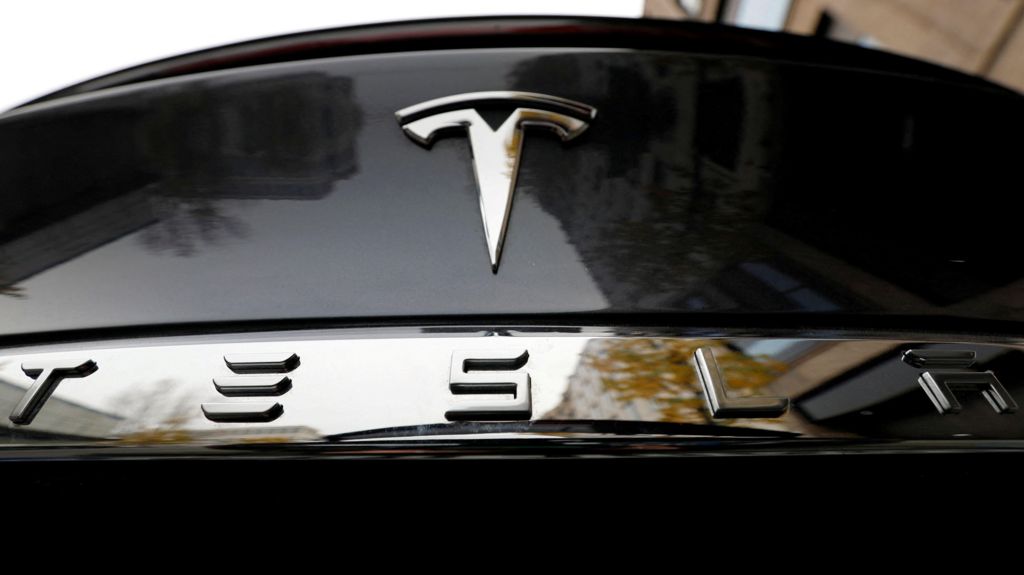Business
Canada's trade deficit widens to $3.2B on import surge – BNN

Canada’s trade deficit rebounded sharply in June as the movement of motor vehicles and parts revved up with a resumption of production after months of COVID-19 lockdowns.
Statistics Canada reported Wednesday that the country’s merchandise trade deficit widened to $3.2 billion from a deficit of $1.3 billion in May and $858 million a year ago.
The import of goods rose 21.8 per cent in the month to $42.9 billion but were down 15 per cent from June 2019.
Exports were up 17.1 per cent to $39.7 billion but down 20 per cent from $49.6 billion a year earlier. After a 5.6 per cent gain in May, export levels remained well below the pre-pandemic level of $48.4 billion.
Trade activity has resumed as COVID-19 related restrictions have eased.
“Last week’s GDP report may have painted a dour picture of Q2, but we can add today’s trade data to the list of indicators pointing to a good-sized rebound for Q3,” said Brian DePratto, senior economist at TD Economics.
He said it was encouraging to see further improvement in U.S. manufacturing sentiment last month and robust U.S. housing activity of late that augurs well for Canadian exporters.
However, the durability of the recovery remains an open question.
“Ultimately, as wild and challenging as both the Q2 downswing and Q3 upswing are likely to be, the bigger question is what comes after the whipsaw. Unless and until a vaccine or effective treatment is widely available, expect a more gradual recovery path to emerge, leaving lingering challenges for all areas of the economy — international trade included.”
After falling to a low of $1.7 billion in May, the imports of motor vehicles and parts climbed to $5.2 billion in June and represented almost half the growth of total imports in the months.
Imports of passenger cars, light trucks and parts surged to $5.2 billion from $1.66 billion in May, driven by imports from the United States, Germany, Mexico and South Korea. June was the first full month of production as North American auto assembly plants since February, but productions capacity remained below pre-pandemic levels.
Auto exports rose 218 per cent to $6.1 billion.
Imports of aircraft and other transportation equipment and parts nearly doubled to $2.1 billion in June while imports of parts for other transportation equipment reached a record high of $738 million, led by higher imports of parts for other transportation equipment from Belgium. Exports were flat.
Compared with the month before the COVID-19 pandemic’s economic impact was felt, imports were down 14.3 per cent from February while exports decreased 17.9 per cent.
In volume terms, imports rose 28.3 per cent while exports increased 10.6 per cent. Import prices were down 5.1 per cent while export prices were up 5.9 per cent.
Canada’s trade surplus with the United States narrowed to $1.1 billion from $1.9 billion in May as imports from the U.S. increased 28 per cent to $26.4 billion while exports from the United States gained 21.8 per cent to $27.5 billion.
The trade deficit with China was $1.6 billion as imports reached $3.97 billion while exports were $2.37 billion.
Canada’s trade deficit with countries other than the United States widened to $4.3 billion in June from $3.3 billion in May as exports fell 24.7 per cent to $105.7 billion, the lowest level since the fourth quarter of 2010. Exports of energy products plunged 56 per cent, motor vehicles and parts down 56 per cent.
On a quarterly basis, Canada’s trade deficit widened to $9.4 billion in the second quarter from $8.4 billion three months earlier.
Exports decreased 24.7 per cent to $105.7 billion. the lowest amount since the fourth quarter of 2010 as exports of energy products and vehicles and parts decreased 56 per cent. Imports fell 22.7 per cent to $115.1 billion, the lowest level since the third quarter of 2011, with motor vehicles and parts down nearly 67 per cent.
Meanwhile, service exports rose 4.1 per cent to $8.1 billion while imports increased 17 per cent to $8.8 billion.
Business
Meta shares sink after it reveals spending plans – BBC.com


Shares in US tech giant Meta have sunk in US after-hours trading despite better-than-expected earnings.
The Facebook and Instagram owner said expenses would be higher this year as it spends heavily on artificial intelligence (AI).
Its shares fell more than 15% after it said it expected to spend billions of dollars more than it had previously predicted in 2024.
Meta has been updating its ad-buying products with AI tools to boost earnings growth.
It has also been introducing more AI features on its social media platforms such as chat assistants.
The firm said it now expected to spend between $35bn and $40bn, (£28bn-32bn) in 2024, up from an earlier prediction of $30-$37bn.
Its shares fell despite it beating expectations on its earnings.
First quarter revenue rose 27% to $36.46bn, while analysts had expected earnings of $36.16bn.
Sophie Lund-Yates, lead equity analyst at Hargreaves Lansdown, said its spending plans were “aggressive”.
She said Meta’s “substantial investment” in AI has helped it get people to spend time on its platforms, so advertisers are willing to spend more money “in a time when digital advertising uncertainty remains rife”.
More than 50 countries are due to have elections this year, she said, “which hugely increases uncertainty” and can spook advertisers.
She added that Meta’s “fortunes are probably also being bolstered by TikTok’s uncertain future in the US”.
Meta’s rival has said it will fight an “unconstitutional” law that could result in TikTok being sold or banned in the US.
President Biden has signed into law a bill which gives the social media platform’s Chinese owner, ByteDance, nine months to sell off the app or it will be blocked in the US.
Ms Lund-Yates said that “looking further ahead, the biggest risk [for Meta] remains regulatory”.
Last year, Meta was fined €1.2bn (£1bn) by Ireland’s data authorities for mishandling people’s data when transferring it between Europe and the US.
And in February of this year, Meta chief executive Mark Zuckerberg faced blistering criticism from US lawmakers and was pushed to apologise to families of victims of child sexual exploitation.
Ms Lund-Yates added that the firm has “more than enough resources to throw at legal challenges, but that doesn’t rule out the risks of ups and downs in market sentiment”.
Business
Oil Firms Doubtful Trans Mountain Pipeline Will Start Full Service by May 1st
|
|


Oil companies planning to ship crude on the expanded Trans Mountain pipeline in Canada are concerned that the project may not begin full service on May 1 but they would be nevertheless obligated to pay tolls from that date.
In a letter to the Canada Energy Regulator (CER), Suncor Energy and other shippers including BP and Marathon Petroleum have expressed doubts that Trans Mountain will start full service on May 1, as previously communicated, Reuters reports.
Trans Mountain Corporation, the government-owned entity that completed the pipeline construction, told Reuters in an email that line fill on the expanded pipeline would be completed in early May.
After a series of delays, cost overruns, and legal challenges, the expanded Trans Mountain oil pipeline will open for business on May 1, the company said early this month.
“The Commencement Date for commercial operation of the expanded system will be May 1, 2024. Trans Mountain anticipates providing service for all contracted volumes in the month of May,” Trans Mountain Corporation said in early April.
The expanded pipeline will triple the capacity of the original pipeline to 890,000 barrels per day (bpd) from 300,000 bpd to carry crude from Alberta’s oil sands to British Columbia on the Pacific Coast.
The Federal Government of Canada bought the Trans Mountain Pipeline Expansion (TMX) from Kinder Morgan back in 2018, together with related pipeline and terminal assets. That cost the federal government $3.3 billion (C$4.5 billion) at the time. Since then, the costs for the expansion of the pipeline have quadrupled to nearly $23 billion (C$30.9 billion).
The expansion project has faced continuous delays over the years. In one of the latest roadblocks in December, the Canadian regulator denied a variance request from the project developer to move a small section of the pipeline due to challenging drilling conditions.
The company asked the regulator to reconsider its decision, and received on January 12 a conditional approval, avoiding what could have been another two-year delay to start-up.





Business
Tesla profits cut in half as demand falls
|
|
Tesla profits slump by more than a half


Tesla has announced its profits fell sharply in the first three months of the year to $1.13bn (£910m), compared with $2.51bn in 2023.
It caps a difficult period for the electric vehicle (EV) maker, which – faced with falling sales – has announced thousands of job cuts.
Boss Elon Musk remains bullish about its prospects, telling investors the launch of new models would be brought forward.
Its share price has risen but analysts say it continues to face significant challenges, including from lower-cost rivals.
The company has suffered from falling demand and competition from cheaper Chinese imports which has led its stock price to collapse by 43% over 2024.
Figures for the first quarter of 2024 revealed revenues of $21.3bn, down on analysts’ predictions of just over $22bn.
But the decision by Tesla to bring forward the launch of new models from the second half of 2025 boosted its shares by nearly 12.5% in after-hours trading.
It did not reveal pricing details for the new vehicles.
However Mr Musk made clear he also grander ambitions, touting Tesla’s AI credentials and plans for self-driving vehicles – even going as far as to say considering it to be just a car company was the “wrong framework.”
“If somebody doesn’t believe Tesla is going to solve autonomy I think they should not be an investor,” he said.
Such sentiments have been questioned by analysts though, with Deutsche Bank saying driverless cars face “technological, regulatory and operational challenges.”
Some investors have called for the company to instead focus on releasing a lower price, mass-market EV.
However, Tesla has already been on a charm offensive, trying to win over new customers by dropping its prices in a series of markets in the face of falling sales.
It also said its situation was not unique.
“Global EV sales continue to be under pressure as many carmakers prioritize hybrids over EVs,” it said.
Despite plans to bring forward new models originally planned for next year the firm is cutting its workforce.
Tesla said it would lose 3,332 jobs in California and 2,688 positions in Texas, starting mid-June.
The cuts in Texas represent 12% of Tesla’s total workforce of almost 23,000 in the area where its gigafactory and headquarters are located.
However, Mr Musk sought to downplay the move.
“Tesla has now created over 30,000 manufacturing jobs in California!” he said in a post on his social media platform X, formerly Twitter, on Tuesday.
Another 285 jobs will be lost in New York.
Tesla’s total workforce stood at more than 140,000 late last year, up from around 100,000 at the end of 2021, according to the company’s filings with US regulators.
Musk’s salary
The car firm is also facing other issues, with a struggle over Mr Musk’s compensation still raging on.
On Wednesday, Tesla asked shareholders to vote for a proposal to accept Mr Musk’s compensation package – once valued at $56bn – which had been rejected by a Delaware judge.
The judge found Tesla’s directors had breached their fiduciary duty to the firm by awarding Mr Musk the pay-out.
Due to the fall in Tesla’s stock value, the compensation package is now estimated to be around $10bn less – but still greater than the GDP of many countries.
In addition, Tesla wants its shareholders to agree to the firm being moved from Delaware to Texas – which Mr Musk called for after the judge rejected his payday.





-
News21 hours ago
Amid concerns over ‘collateral damage’ Trudeau, Freeland defend capital gains tax change
-
Art19 hours ago
The unmissable events taking place during London’s Digital Art Week
-



 Politics23 hours ago
Politics23 hours agoHow Michael Cohen and Trump went from friends to foes
-



 Real eState23 hours ago
Real eState23 hours agoBlending Function and Style: The Best Garage Door Designs for Contemporary Homes
-
News22 hours ago
U.K. tabloids abuzz with Canadian’s ‘Loch Ness monster’ photo
-
Health24 hours ago
Interior Health delivers nearly 800K immunization doses in 2023
-



 Politics22 hours ago
Politics22 hours agoPolitics Briefing: Saskatchewan residents to get carbon rebates despite province’s opposition to pricing program
-
News20 hours ago
What is a halal mortgage? How interest-free home financing works in Canada











